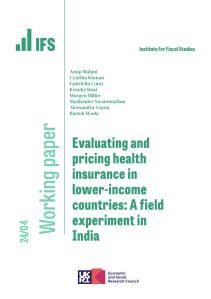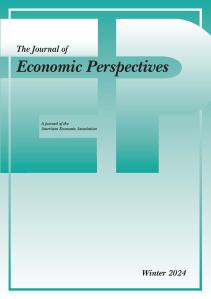
This note shows the results on firm size and effective tax rates for Uganda, where the corporate statutory tax rate is 30%.
Do some firms pay more corporate taxes than others? If so, which types of firms benefit from a reduced tax burden, and how do they achieve this reduction? Are differences in tax rates due to the design of the tax system, to strategic tax planning or to differential enforcement? These questions matter for tax design and are difficult to answer in an empirically founded and comprehensive manner. We use administrative tax data in many countries to systematically calculate firm-level effective tax rates (ETRs) and study how ETRs vary across the firm size distribution. This note shows the results for Uganda, where the corporate statutory tax rate is 30%. We find that the ETR averages 14% across all firms, increases slightly over the firm-size distribution, and drops at the top for the largest firms.
Authors

Research Fellow London School of Economics and Political Science
Camille is a Research Fellow at IFS, a Director of the CEPR Public Economics Program and a Professor of Economics at the London School of Economics.

Associate Director
Anne is head of the tax and development group at IFS and an honorary faculty member at UCL. Her work focuses on tax policy in lower-income countries.

Research Fellow World Bank
Pierre is an IFS Research Fellow and an economist in the Macro and Growth Unit of the World Bank's Development Research Group.

Kyle McNabb

Roel Dom
Report details
- Publisher
- TaxDev
Suggested citation
Bachas, P et al. (2022). Effective tax rates and firm size: the case of Uganda. London: TaxDev. Available at: https://ifs.org.uk/publications/effective-tax-rates-and-firm-size-case-uganda (accessed: 7 May 2024).
Related documents
More from IFS
Understand this issue

Spring Budget 2024: What you need to know
7 March 2024

Spring Budget 2024: the Chancellor’s options

The £600 billion problem awaiting the next government
25 April 2024
Policy analysis

Spring Budget 2024
6 March 2024

Oil and gas make Scotland’s underlying public finances particularly volatile and uncertain
27 March 2024

Reforming the taxation of non-doms: policy options and uncertainties
4 March 2024
Academic research

Evaluating pricing health insurance in lower-income countries: A field experiment in India
14 March 2024

Does the value-added tax add value? Lessons using administrative data from a diverse set of countries
9 February 2024

Intertemporal income shifting and the taxation of business owner-managers
24 January 2024